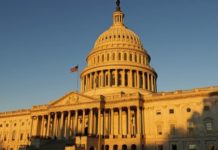
For decades, the life insurance industry has supported the voluntary nature of the nation’s retirement plan system. We’ve worked to increase incentives and reduce regulatory burdens for employers offering plans. Last week, our industry announced a dramatic move, endorsing a federal proposal to require employers without plans to provide workers with access to a payroll deduction for savings through an IRA, 401(k), or other qualified retirement savings plan.
The reason for such an approach is clear: too many workers are nearing retirement without enough savings. Workplace plans have proven to be a key factor in developing savings habits.
People are living longer thanks to advances in medicine. This is great news for those who are prepared financially, but of deep concern to those who aren’t. Some Americans could live 30 years in retirement, which carries drastically different needs than spending 10 to 20 years in retirement. In this dichotomy lies the challenge for policymakers and thought leaders searching for solutions for all retirees.
Social Security is and will remain an essential safety net but it is straining under increasing longevity, a surge of retiring baby boomers that will peak between 2023 and 2027, and a smaller number of young workers supporting the system. Every day, 10,000 baby boomers reach age 65. One-third have between nothing and $25,000 in savings to supplement Social Security income.
At the same time, evolutions in the workplace – a decline in pensions, an increasingly mobile workforce, and a growing gig economy –create new challenges. Employees of small businesses are less likely to have access to employer-based plans. Retirement plan access is lowest for those earning average wages in the bottom quartile. The Employee Benefit Research Institute reports that only 17 percent of workers are very confident in their ability to live comfortably in retirement.
For many, the retirement crisis is already here. We can’t let this problem worsen. We need solutions.
New government run programs are not the answer. Workplace retirement plans are incredibly effective, especially when savers take advantage of regular payroll deductions or automatic enrollments. When offered a plan, four out of five full-time private sector workers participate.
That’s why the life insurance industry is supporting efforts to ensure more Americans have access to retirement savings plans at work. The proposal – championed by House Ways and Means Committee Chairman Richard Neal (D-Mass), who for years has promoted retirement plans for more workers – would require businesses with over 10 employees to automatically enroll their workers into IRAs and 401(k)s and make it easier for employers to offer retirement savings plans. While some of the 30 million workers who would gain access may choose not to participate, estimates from the Bureau of Labor Statistics show that at least 22 million workers would enroll. A huge leap forward.
Thankfully, retirement seems to be one area in which Washington agrees needs attention.
Neal’s proposal could be enhanced by other bipartisan proposals like the Retirement Enhancement and Savings Act (RESA), which would make it easier and financially viable for small employers to join together to offer workers 401(k)s or similar plans, and to offer annuities, products that guarantee an income for life, in their retirement plans.
The life insurance industry has long stood for the financial security and well-being of all American families. In the 1930s, when the nation was at a crossroads, life insurance company actuaries offered their expertise to help develop the Social Security system. It was a controversial undertaking at the time. But the heartbeat of our industry was – and continues to be – to provide solutions to Americans who are facing real financial challenges.
It was the right move. Social Security has been one of America’s great social stabilizers, benefitting Americans for generations.
We’re at another crossroads. We believe a better future is possible for all retiring Americans. Helping workers accumulate retirement savings of their own is vitally important to the well-being of every household and the nation.
Financial security is an issue bigger than one industry, sector, or segment of the population. No doubt, solving this challenge will take a multi-disciplinary approach with a range of perspectives and policies that fit diverse needs. Let’s work together to make sure all Americans can achieve financial security.
Susan K. Neely is President and CEO of the American Council of Life Insurers, which represents 280 companies, and 95 percent of assets in the life insurance industry.






